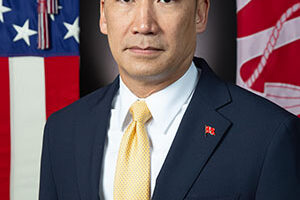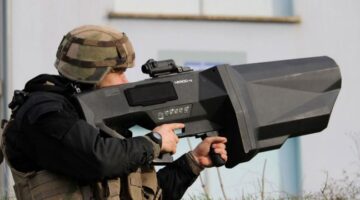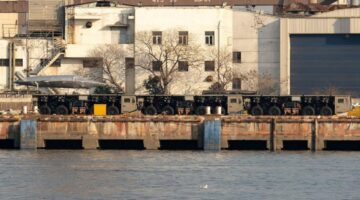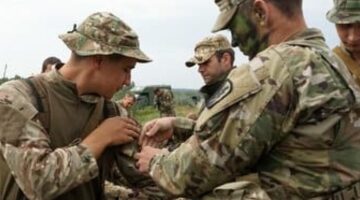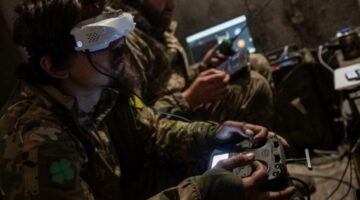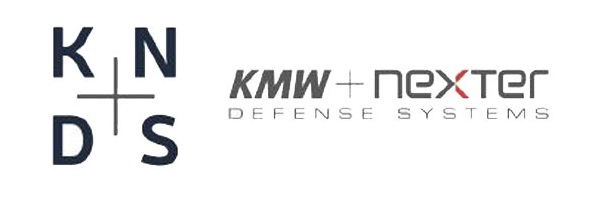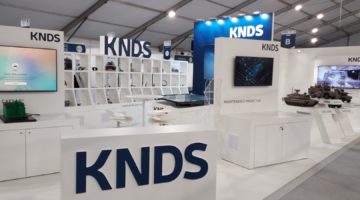By Pierre Tran – Germany exercises strict controls on arms exports, but the sale of the Eurofighter Typhoon to Saudi Arabia shows there are ways of sealing sensitive weapons deals despite reservations from Berlin, a French executive said.
A key aim in the creation of KNDS, a Franco-German joint venture, is to cooperate in foreign arms sales in response to greater competition in the world market.
German family-owned Krauss-Maffei Wegmann and French state-owned Nexter are the KNDS partners, specializing in land weapons including respectively Leopard and Leclerc tanks.
That drive for overseas sale contends with a sharp difference between Berlin and Paris on export policy.
German Chancellor Angela Merkel has stated that Germany will suspend arms sales to Riyadh to back up an international demand for full disclosure on the murder of Jamal Kashoggi, a Saudi columnist for the Washington Post.
French President Emmanuel Macron, meanwhile, stayed silent on weapons deals with Saudi Arabia, while also calling for information on the killing of Kashoggi, whose slaying was reported to have been cleared at high level in the Saudi government.
Quite apart from the death and mysterious disposal of the Saudi journalist, France and Germany have yet to reach a new agreement on arms exports.
There is the Debré-Schmidt pact, which has allowed weapons to be sold abroad, the executive said Nov. 8. at a dinner debate held under Chatham House rules, which protect the identity of the speakers.
“Eurofighter found a highly pragmatic solution,” the executive said. The Eurofighter consortium signed through the UK a memorandum of understanding for the sale of the Typhoon combat jet to Saudi Arabia.
In the absence of a new Franco-German export policy, prospective deals could be considered “case by case,” the executive said. The German political coalition makes foreign arms sales “highly sensitive,” the executive added.
There is also the European market for tanks, with Germany benefiting from the Leopard’s large presence in Europe, the executive said.
Britain is in advanced talks for a sale worth 10 billion pounds ($12.8 billion) for 48 Typhoon jets to Saudi Arabia. Britain, Germany, Italy and Spain back the Eurofighter consortium, with Germany supplying a third of the Typhoon components.
The Franco-German 1971 and 1972 Debré-Schmidt agreements assured that clearance of arms sales by one country applied to the partner nation.
Germany has so far approved this year €400 million of weapons sales to Riyadh, the executive told Operationels, adding that was a fairly hefty amount.
With a German suspension of sales to Saudi Arabia, there is uncertainty whether clearance previously granted still holds, TTU newsletter reported Nov. 14. That doubt has led to German shipbuilder Lürssen to stop work on patrol boats for the Saudi Navy, with some 300 workers temporarily laid off.
France is fully aware of the importance of German policy on selling arms abroad.
“To move ahead and in an efficient way in Franco-German industrial cooperation, I think that we will have to work together in export capacity,” French Armed Forces Minister Florence Parly told Feb. 8 the defense and armed forces committee of the lower house National Assembly.
“We are wondering what will be in the (German) coalition agreement which is being adopted. It seems that effectively the principles on arms exports will be subject to rules, constraints and significant guarantees,” she said.
“We know very well that if we cooperate on the industrial front and we are not able to sell our equipment to other countries, the economic model of cooperation will not be assured.
“This is, I would say, a political problem, and we will need to reach agreement if we wish to pursue Franco-German cooperation.”
The need for Berlin’s approval of the use of German equipment slowed in 2012 and 2013 the delivery to Saudi Arabia the Aravis armored vehicle from Nexter and Multi Purpose Combat Vehicle from MBDA.


